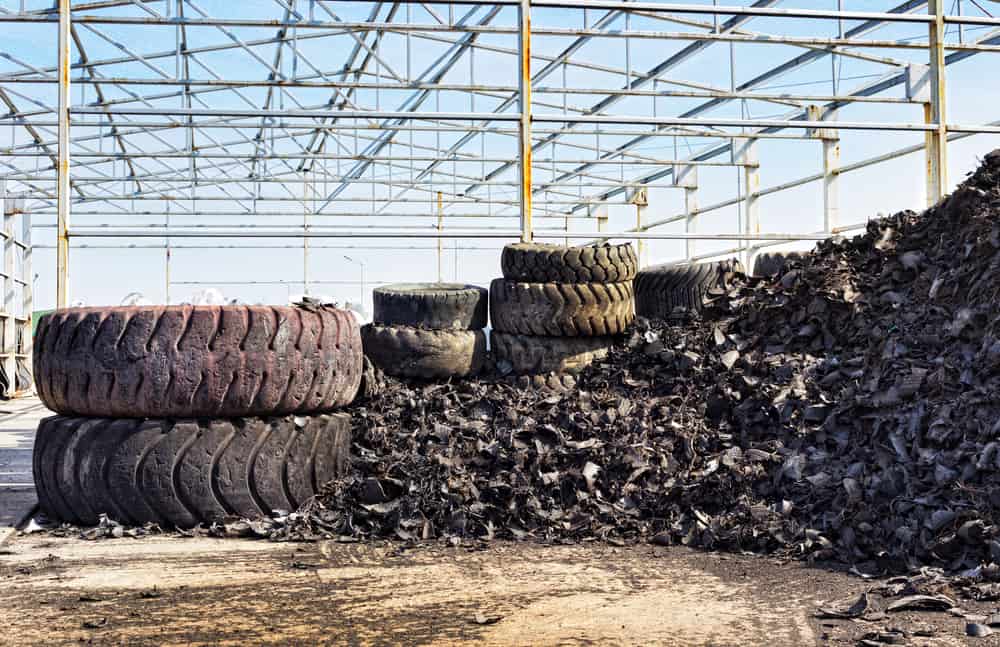How To Make An Impact In Nigeria Through Tyre Recycling
How To Make An Impact In Nigeria Through Tyre Recycling
Nigeria is a country of immense potential and opportunity, and by making an impact through tire recycling, anyone can contribute to the growth and development of the nation. Tire recycling is a great way to help protect the environment, while also providing cleaner and safer products for the people of Nigeria. By taking advantage of the vast number of tires that are discarded every day, tire recyclers can turn these tires into valuable resources for the Nigerian economy. Not only will this create jobs and help reduce waste, but it can also help the environment, as tires are a major contributor to air and water pollution. Tire recycling can help Nigeria become a more sustainable and prosperous country, and by taking part in this process, anyone can help make a difference.
What is tire recycling?
Tire recycling is a special process that converts used or discarded tires into useful materials, such as synthetic fibers and carbon black. These materials have many benefits, such as lower emissions, reduced noise, and a longer lifespan. Tire recycling can be used in the manufacturing of new tires, fuel, or even asphalt. So, with tire recycling, you will get multiple uses out of a single tire, rather than having to throw it away after just one use. If a tire is thrown away, it can take up to 1000 years to decompose, making it a huge environmental hazard. Tires are a major source of pollution in Nigeria, but with tire recycling, these discarded tires can be turned into harmless materials. Tire recycling helps to clean up the environment and promote sustainability. It can also create new jobs, reduce noise pollution, and improve the safety of roadways in Nigeria. Tire recycling is a great way to make an impact!
The benefits of tire recycling in Nigeria
If recycled properly, tires can be used to create many different products. Tire recycling is beneficial for several reasons, including the following: – Cleaner air and water: Tires are a major source of pollution, but when recycled, they can be turned into products that help reduce pollution. – Reduce reliance on resources: By using recycled materials, the need for virgin materials is reduced. This helps to protect the environment by reducing deforestation and soil degradation. – Create new jobs: Tire recycling creates many new jobs, from collection to processing to distribution. This helps to reduce unemployment, especially among people living in poverty. – Improve safety of roadways: Using recycled tire materials on roadways can reduce noise pollution and improve safety. – Protect the environment: By using recycled materials, you can help to protect the environment, reduce waste, and promote sustainability.
Challenges of tire recycling in Nigeria
As with any process, there are challenges to tire recycling in Nigeria. Challenges include the following: – Limited recycling capacity: There is only one operating tire recycling facility in Nigeria, and there is limited capacity to process tires. This creates a high amount of waste at the collection level. – Lack of awareness: The public is not very aware of the importance of tire recycling. This can lead to a high amount of waste at the collection level. – Inability to process different types of tires: Only a few producers can process different types of tires, such as aircraft, truck, and bus tires. – Inability to produce high-quality products: The quality of products from recycled tires is not as good as those from virgin materials. This can be due to contamination and low-quality feedstock.
The potential for tire recycling in Nigeria
Tire recycling has a lot of potential in Nigeria, and with further developments, it can grow even further. The following are some of the potential benefits of tire recycling in Nigeria: – New jobs: Tire recycling creates many new jobs, and many of these jobs can be filled by people living in poverty. – Cleaner air and water: Tires are a major source of pollution, but when they are recycled, they can be turned into products that help reduce pollution. – Increased revenue: By recycling used tires, the government can receive revenue from the sale of recycled materials. This can help to improve the economy and create jobs. – Protect the environment: By using recycled materials, you can help to protect the environment, reduce waste, and promote sustainability.
Tire recycling solutions for Nigeria
In order to make the most out of tire recycling in Nigeria, the following must be implemented: – Increase recycling capacity: There is only one operating tire recycling facility in the country, and it does not have the capacity to process all of the tires that are collected. – Improve awareness: People must be made aware of the importance of recycling used tires. This can be accomplished through advertisements, campaigns, and educational events. – Improve ability to process different types of tires: The industry must work to process different types of tires, such as aircraft, truck, and bus tires. – Improve ability to produce high-quality products: The industry must improve its ability to produce high-quality products from recycled tires. This will allow it to be competitive and provide high-quality products.
Strategies for implementing tire recycling
If you want to make an impact through tire recycling, you will need to learn how to implement the process. The following are important strategies for implementing tire recycling: – Increase recycling capacity: There is only one operating tire recycling facility in the country, and it does not have the capacity to process all of the tires that are collected. You can help by working with the government to find ways to increase the capacity of this facility. – Improve awareness: People must be made aware of the importance of recycling used tires. This can be accomplished through advertisements, campaigns, and educational events. – Improve ability to process different types of tires: The industry must work to process different types of tires, such as aircraft, truck, and bus tires. – Improve ability to produce high-quality products: The industry must improve its ability to produce high-quality products from recycled tires. This will allow it to be competitive and provide high-quality products.
How to get involved in tire recycling in Nigeria
If you want to make an impact through tire recycling, there are many things that you can do. To make an impact, you will need to learn how to operate a tire recycling facility, provide consulting services, or even open your own tire recycling business. You can also educate the public on the importance of tire recycling and participate in recycling events. No matter how you get involved, you will be able to make a difference and contribute to the growth and development of the country. Making an impact through tire recycling is a great way to help protect the environment, while also providing cleaner and safer products for the people of Nigeria. With tire recycling, you will get multiple uses out of a single tire, rather than having to throw it away after just one use. If a tire is thrown away, it can take up to 1000 years to decompose, making it a huge environmental hazard. With tire recycling, you can help to clean up the environment and promote sustainability. You can also create new jobs, reduce noise pollution, and improve the safety of roadways in Nigeria. Tire recycling is a great way to make an impact!








LEAVE A COMMENT
You must be logged in to post a comment.